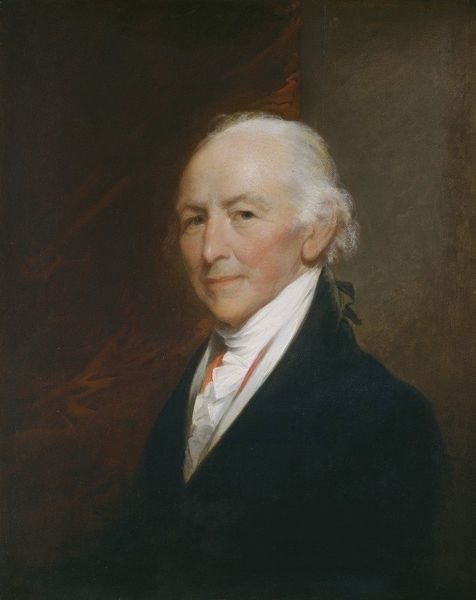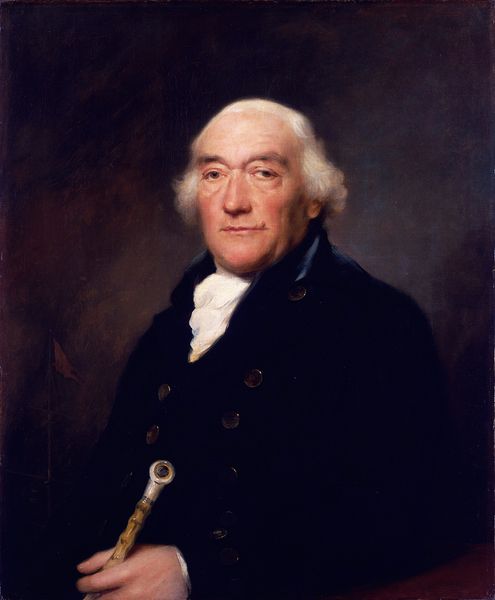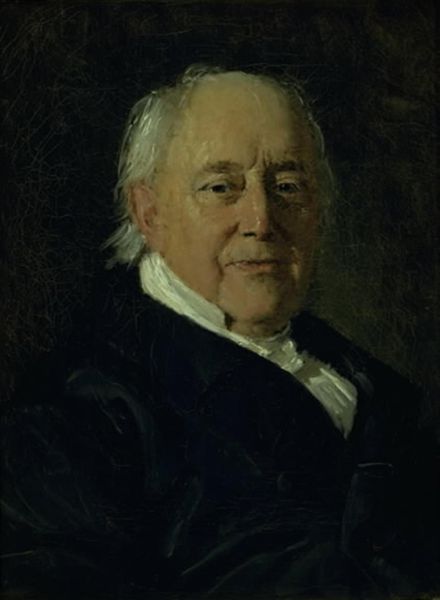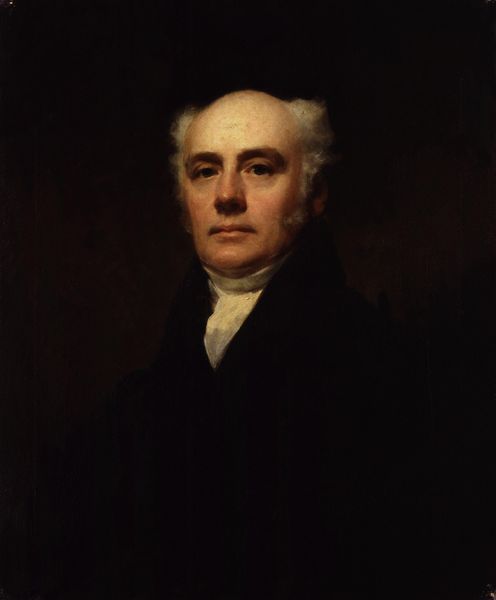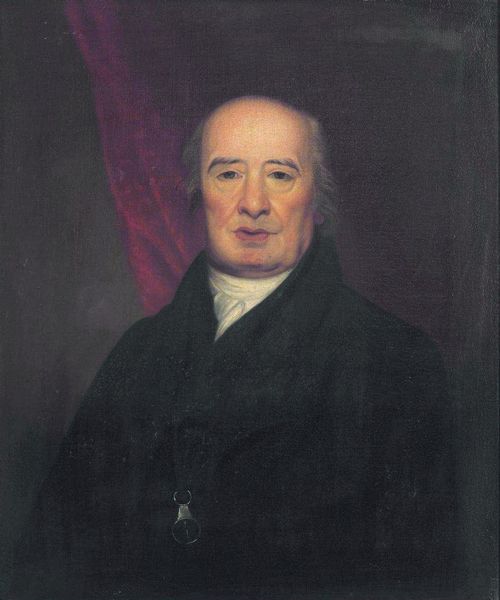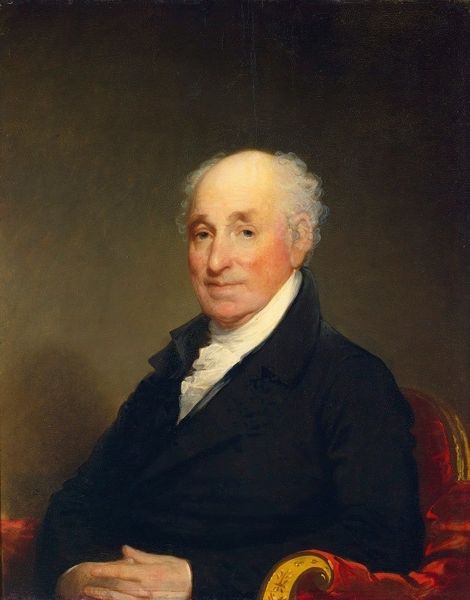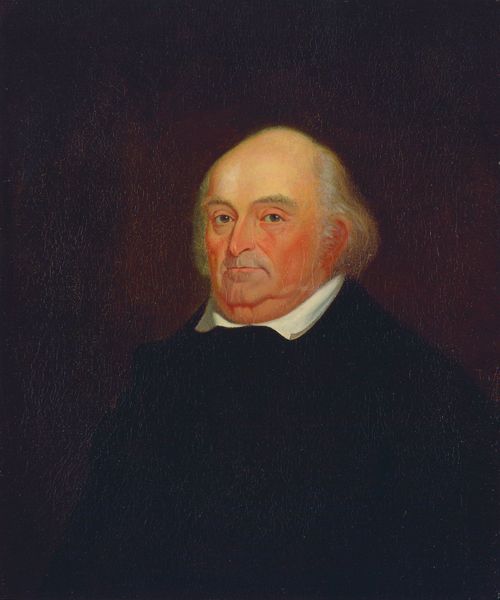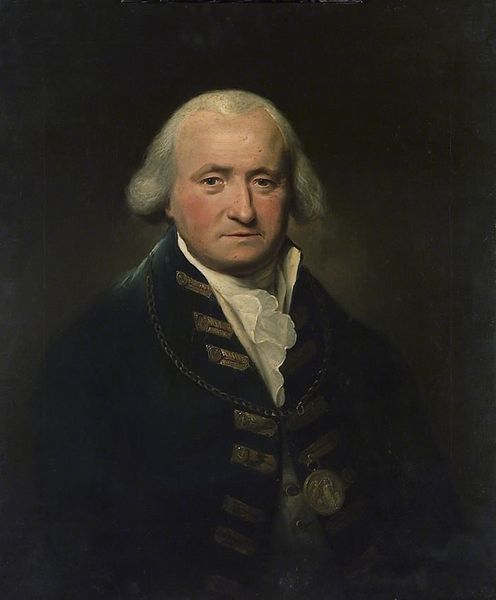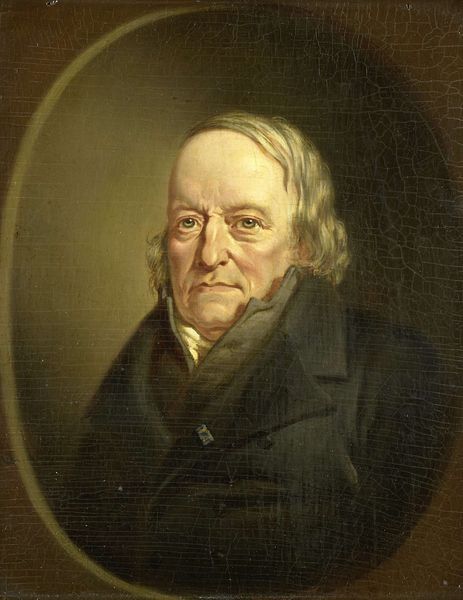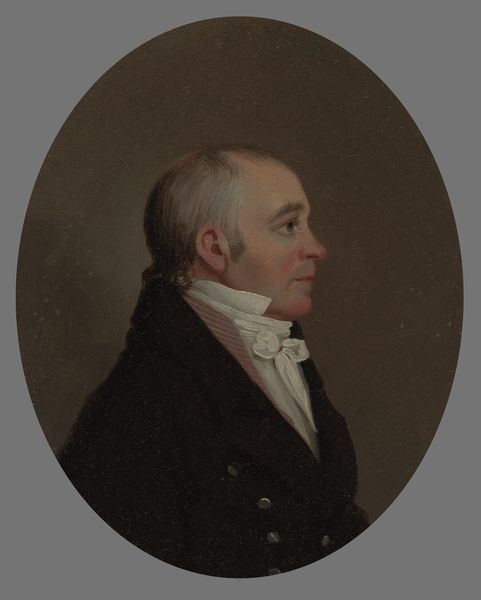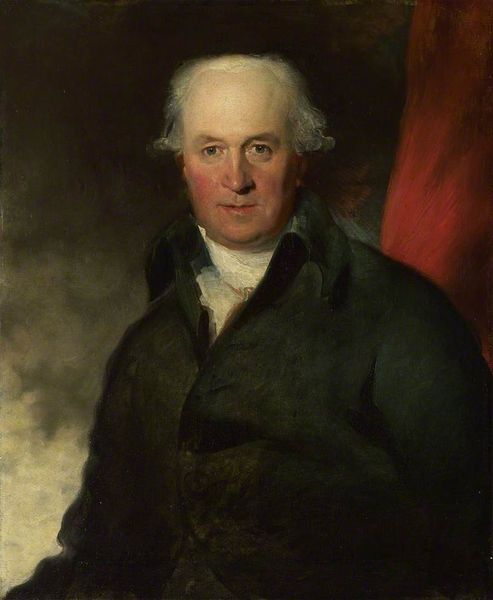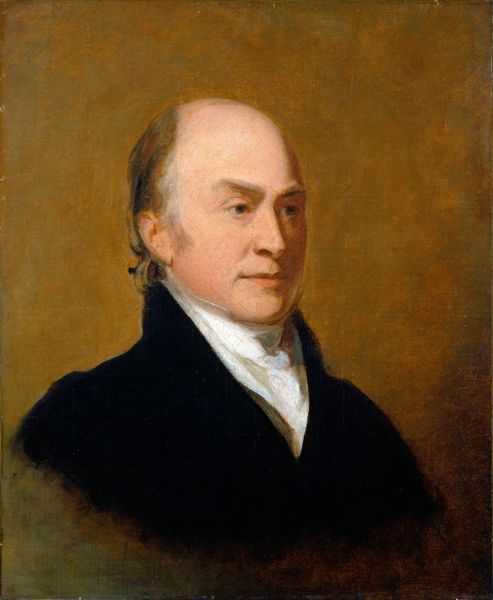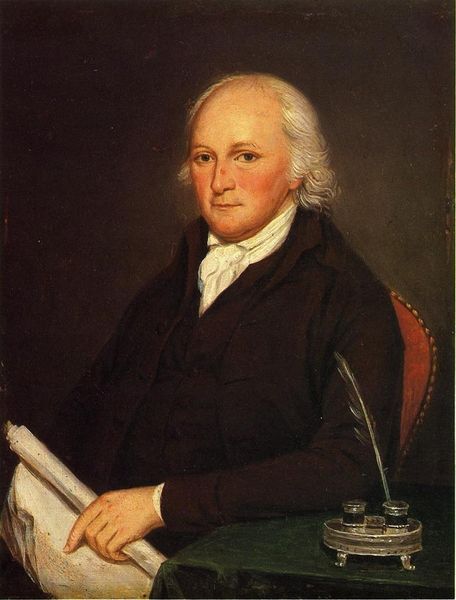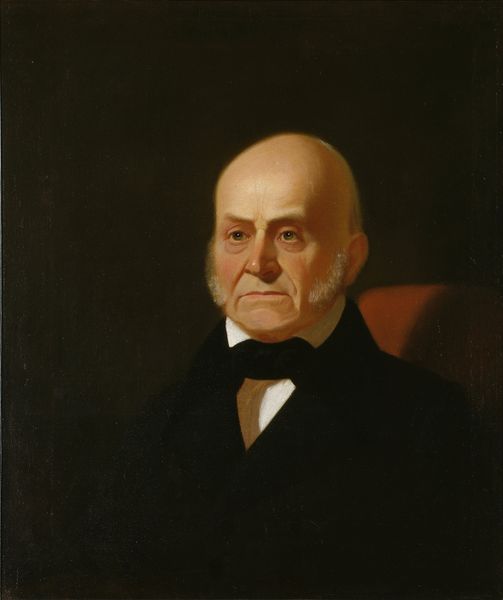
painting, oil-paint
#
portrait
#
neoclacissism
#
portrait
#
painting
#
oil-paint
#
history-painting
Copyright: Public domain
Samuel Morse made this portrait of John Adams in the United States, possibly in the 1820s. Morse, better known for his invention of the telegraph, trained as a painter in the European tradition of portraiture. In that tradition, this portrait reflects the status of its sitter. Adams, who was in his eighties at the time, is depicted as an elder statesman, his face marked by the wisdom and experience of a life in public service. Consider the plain background and dark, formal clothing. The image emphasizes Adams’s character and intellect, rather than any kind of fashionable flamboyance. It’s a visual statement about the virtues of republicanism, of leadership rooted in civic responsibility. To understand portraits like these, we can examine the artist's biography, the sitter's political life, and the history of institutions like the National Academy of Design, of which Morse was the first president. These resources help us interpret the meaning of the artwork as something tied to social and institutional contexts.
Comments
No comments
Be the first to comment and join the conversation on the ultimate creative platform.
